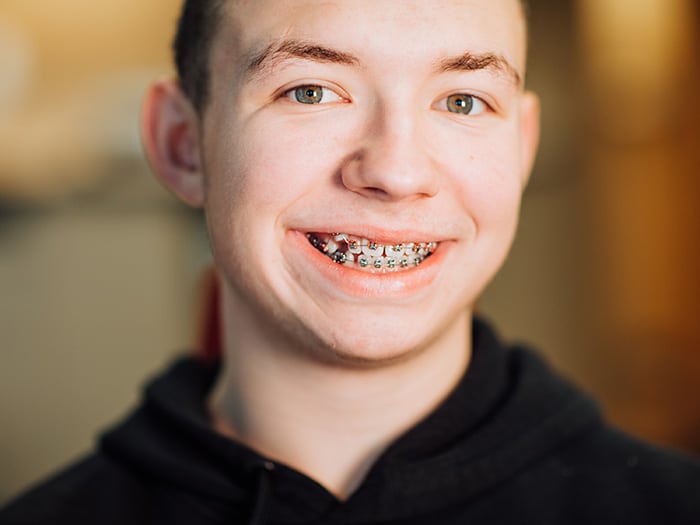Thanks to advancements in orthodontic technology, SKS Orthodontics offers different types of braces options to meet the needs of each patient. Whether you prefer traditional metal braces, the discreet appearance of clear braces, or the convenience of Invisalign aligners, our experienced team—Dr. Vincent Smith, Dr. Brian Kurtzner, and Dr. Greg Stock—will help you determine the best treatment plan to achieve your ideal smile.
Each treatment option is customized to fit your lifestyle, preferences, and orthodontic requirements. We are committed to providing personalized care and ensuring your comfortable and efficient experience. With the right treatment, you can enjoy a beautiful, healthy smile for years to come.
Metal Braces
Metal braces are a highly effective and commonly used treatment for various dental issues. They are smaller, more comfortable, and made from durable metal alloys. You can also customize your braces with colorful elastics, adding a personal touch to your orthodontic treatment while improving your smile.
Ceramic Braces
Ceramic braces, or clear braces, offer a discreet option for those who want a less noticeable treatment. With tooth-colored brackets and wires, they blend in with your teeth while effectively straightening them. Ceramic braces are a great choice for individuals who want a subtle yet efficient orthodontic solution.
Invisalign Aligners
Invisalign provides a clear, removable alternative to traditional braces. These aligners gradually straighten your teeth and can be easily removed for eating, drinking, and brushing. Invisalign is comfortable, with smooth plastic aligners that help avoid irritation, offering a convenient and discreet way to improve your smile.
